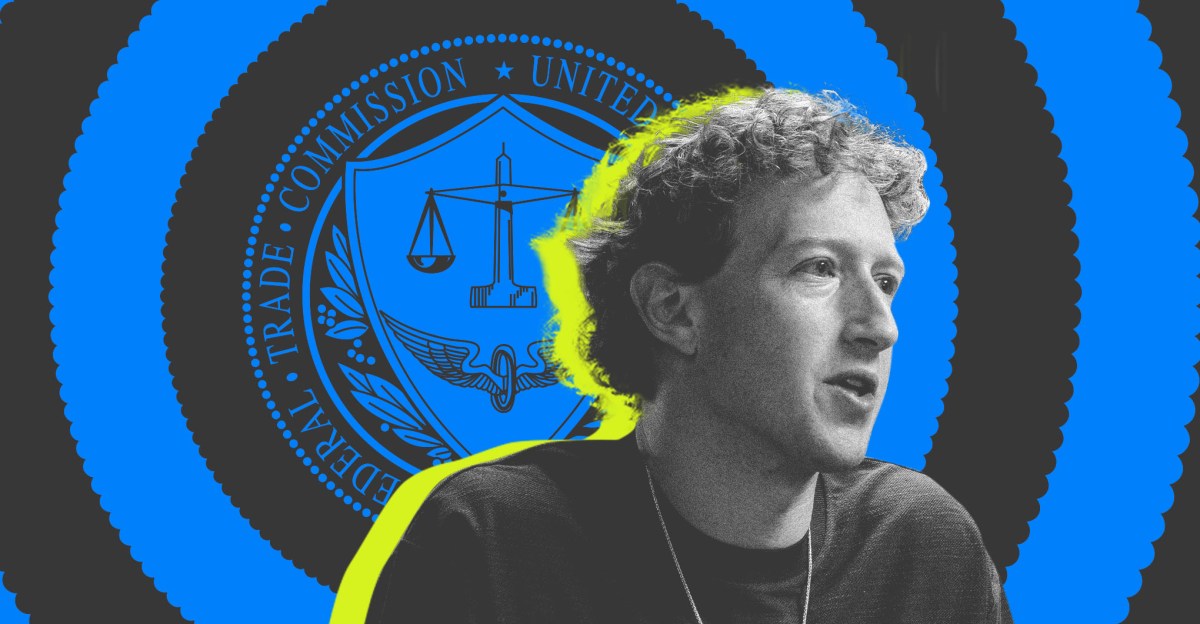Making Instagram a separate company. Buying Snapchat. Wiping everyone’s Facebook friends. Creating a feed of only ads.
These were some of the ideas that Meta CEO Mark Zuckerberg considered over the years as he built his social media empire. Over the past two days, he talked about them from the witness stand at a federal courthouse in Washington, DC, where Meta is fighting the Federal Trade Commission on an antitrust case that could ultimately require it to sell off Instagram and WhatsApp.
Zuckerberg has so far testified for roughly nine hours. He’s expected to continue testifying on Wednesday, followed by Sheryl Sandberg. So far, the FTC has prodded him to confirm its theory of the market and understand his motivation for acquiring nascent rivals.
The FTC’s theory of the case is that Meta gobbled up newer competitors by buying Instagram and WhatsApp in the early 2010s, when it feared they would grow to challenge its dominance. The agency is trying to show that Meta has monopoly power in a market it calls personal social networking services, which is focused on connecting with friends and family and includes the apps Snapchat and MeWe.
Meta argues that the FTC has crafted a purpose-built definition of a market just to go after the company. During his testimony on Tuesday, Zuckerberg politely resisted questions from the FTC that sought to establish its view of the market. He testified that he sees the market as “fluid” but that TikTok, YouTube, and iMessage are his top competitors right now.
On several occasions, the FTC pointed to marketing language Meta used to tout its role in connecting friends and family and tried to draw distinctions between Facebook and services like LinkedIn. Zuckerberg rarely offered one-word answers and would tease out the nuances of how he thinks that Meta’s products overlap with many other services. Sure, Facebook advertises itself as a place to connect with friends on its sign-up page, but that’s probably just the tagline that tested most favorably, he testified. And while LinkedIn markets itself as a career-oriented service, Zuckerberg noted that some of its features overlap with Meta’s.
Other documents presented at trial gave a backstory to the big decisions Meta made over the years, along with a view of what some alternate realities might have looked like. Maybe Meta could have owned Snapchat as well, had CEO Evan Spiegel accepted Zuckerberg’s $6 billion bid in late 2013. If Spiegel had said yes, Meta would have grown Snapchat much faster, he speculated from the stand.
Zuckerberg suggested the idea of wiping users’ friends lists to experience the joy of starting from scratch
Another FTC theory is that Meta has been able to increase its ad load over time because its users don’t have alternative services. Zuckerberg suggested that Meta at one point considered making a feed of only ads because its users think they’re as good as regular content.
Then, there are the messages that Zuckerberg exchanged with his top executives about decisions the company actually made.
The FTC presented internal documents that showed Zuckerberg had been scared that his company was falling behind Instagram’s rapid growth, and that he worried messaging apps like WhatsApp could eventually be used to encroach on the social media sphere. In court, he argued that his acquisitions of those apps made them into what they are today.
Read the full article here













